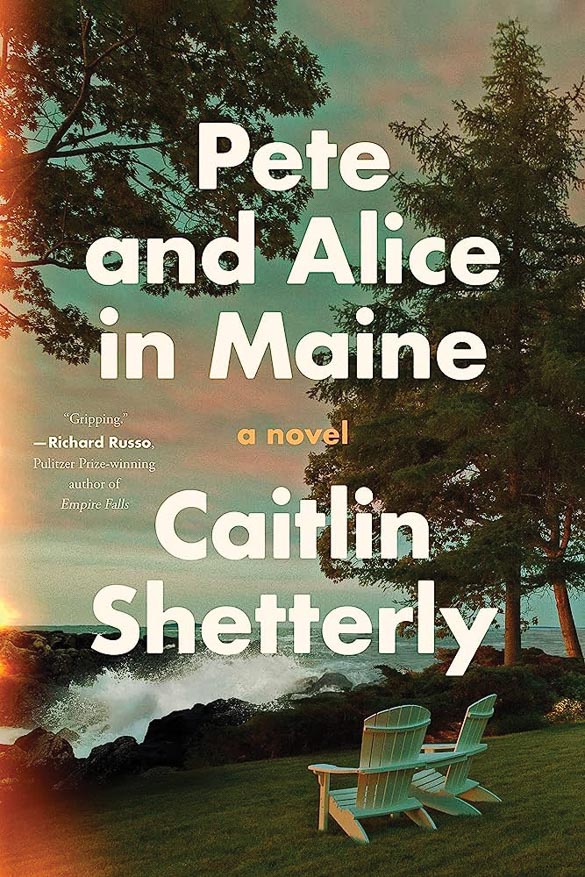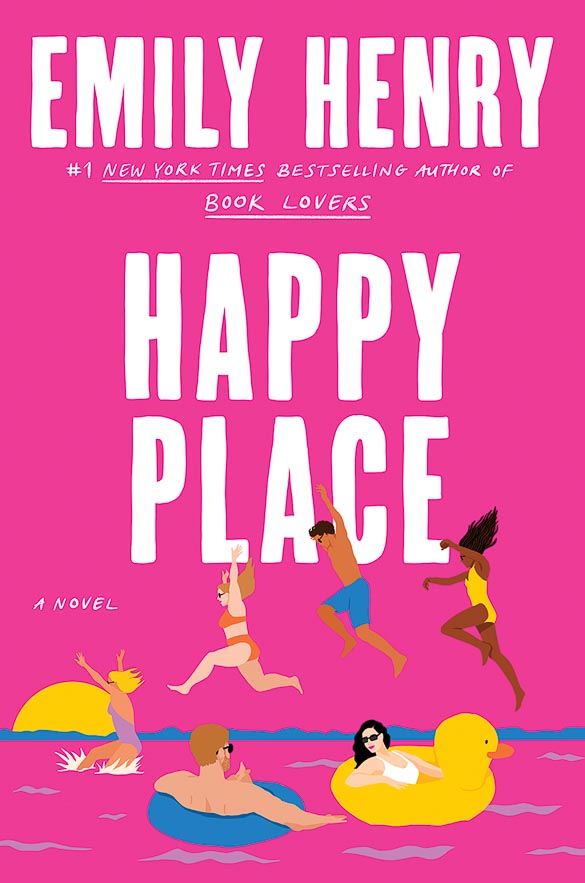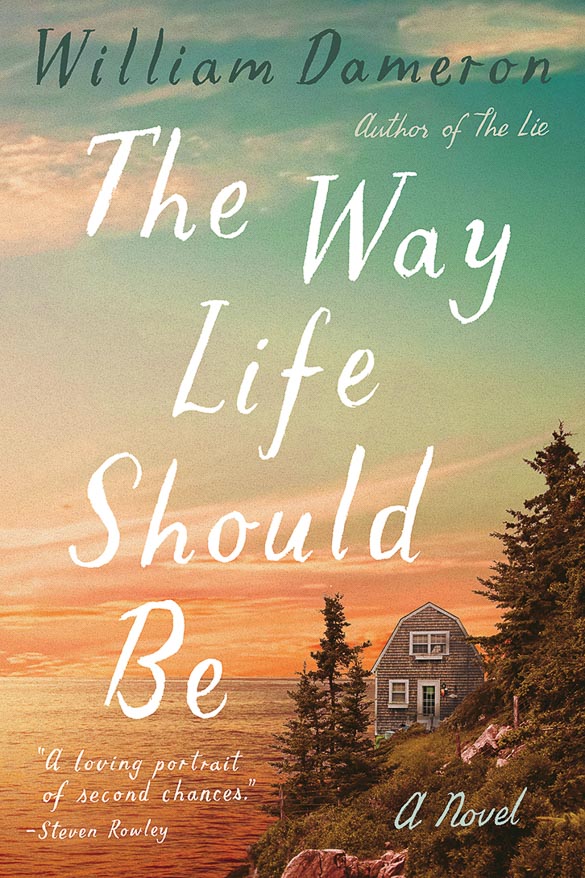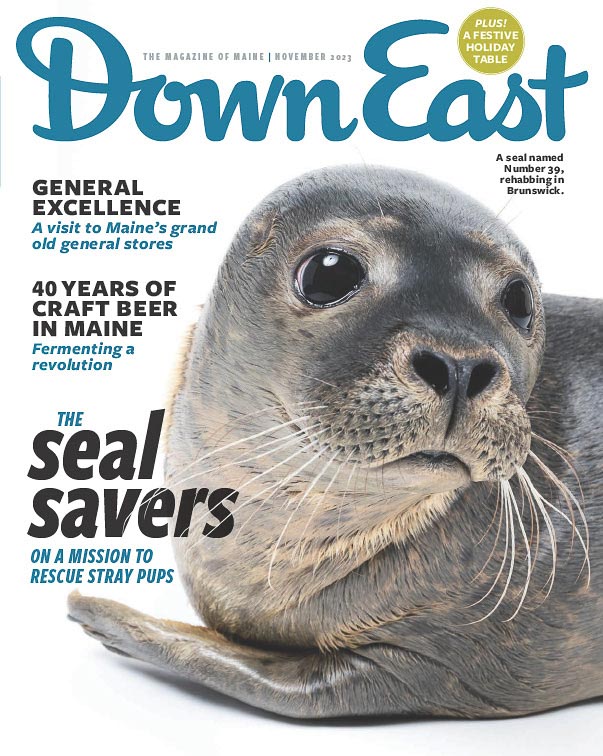By Brian Kevin and Bridget M. Burns
From our August 2023 issue
Pete and Alice in Maine
by Caitlin Shetterly
$29, hardcover, Harper

In the first, uneasy weeks of the COVID pandemic, the titular New Yorkers of Shetterly’s debut novel flee the city with their daughters and their cat, headed for their still-winterized summer place on the Maine coast. Alice is an angsty NPR liberal and lapsed playwright. Pete is a rakish finance bro. Just days before the virus shut down their world, Alice discovered Pete’s affair with a co-worker, and suffice to say it is a deeply lousy time for this well-to-do family to be confined together, even in their pretty house overlooking Eggemoggin Reach.
Lots of the plot points are, as they say, ripped from the headlines, beginning with the ones made in March of 2020, when a few vigilante Vinalhavenites felled a tree across the driveway of some out-of-state neighbors in order to encourage quarantine compliance. That’s how Pete and Alice are welcomed by some of the locals — with whom their relationships have mostly been clientelistic — and that pretty well sets the tone for their engagement with Mainers throughout the rest of the book.
Pete and Alice are the sort of people who take month-long Italian vacations and speak earnestly about their portfolios. That the book wants us to empathize with them or feel any investment in their twig-brittle marriage is a big old ask. But there’s something poignant — and universally recognizable — in watching Alice grapple with the fragility of The Way Life Should Be. In an author’s note, Shetterly writes that humanizing these dismissible “privileged white people” helped her work through some of her own tricky feelings about “who gets to find sanctuary” in her home state, but one of this thoughtful, patient novel’s takeaways is that sanctuary — in Maine, New York, or elsewhere — is only ever fleeting. — B.K.
Happy Place
by Emily Henry
$27, hardcover, Berkley

Thanks to a new wave of millennial writers like Emily Henry, today’s beachy romance novels feature fewer distressed damsels finding their way into the arms of their Fabios and more brainy heroines learning to navigate their feelings and uncertain romantic circumstances. Happy Place’s protagonist, Harriet, is figuring out what happens when a couple within a circle of friends calls it quits. She’s a surgical resident happily flying solo, heading to the fictional town of Knott’s Harbor, in midcoast Maine, where her college coterie reconvenes each summer for the annual lobster festival. But she arrives to find her ex-fiancé, aspiring carpenter Wyn, has also RSVP’d. The pair never shared news of their breakup, so of course, they opt to keep up the charade of their engagement, while the internal politics of their friend group play out around them.
During Acadia day trips, lighthouse cruises, and other Maine-y excursions, Harriet and her friends reflect on the challenges of moving from their carefree post-college years into proper adulthood and all that comes with it: career changes, ailing parents, depression, and the realization that even the best of friends can eventually grow apart. The book relies a lot on quirky miscommunication tropes — and on the allure of pine trees, gray-shingled buildings, blueberries, and the like, which may not thrill Maine readers, to whom they’re less exotic. But it’s fun to piece together the story of a thorny relationship through flashbacks, as the couple rethinks whether they have a future. Henry is praised as the queen of the rom-com novel, and happily-ever-after endings are her specialty, but this one keeps readers wondering whether Harriet and Wyn’s love is meant to be. — B. M. B.
The Way Life Should Be
by William Dameron
$29, hardcover / $17, paperback, Little A

“The goal is that we will not want to kill each other following this glorious summer of family togetherness in Maine.” So reads the intro to the house rules that Matt and Thomas post at their cottage in coastal New Guernsey, a stand-in for Wells. It’s a placid, peculiar little town, in William Dameron’s rendering, an in-between sort of place for his in-between protagonists, middle-aged and married these last five years after each coming out late in life. “They are not the dual-income gays without children who live three miles to the south in Ogunquit, and they are not the wealthy political families who summer three miles north in Kennebunkport.”
They are also not without secrets, dramas, and insecurities. Nor is anyone else in their family, which becomes clear — sometimes hilariously and sometimes heartbreakingly — as their mixed and multigenerational clan converges for a tumultuous summer in New Guernsey. Both Matt and Thomas left marriages to women, and both have grown kids still nursing wounds from childhoods full of hurt. When they turn up, along with Matt’s declining parents, listless sister, and influencer nephew, the couple leans into a family mantra: “We make a place for everyone.”
Loosely autobiographical (Dameron’s last book was a much-praised memoir of his own coming out), The Way Life Should Be is a sprawling, occasionally ribald, often moving meditation on how people who love each other can overcome uncertainty and shame — and on how the consistency of the places we love, like funky Maine beach towns, can set the stage for healing. As Dameron writes, “Maine — with all of her craggy, windswept cliffs, crooked pines, and rocky beaches — remains steadfast, impervious to all this human foolishness.” — B.K.


